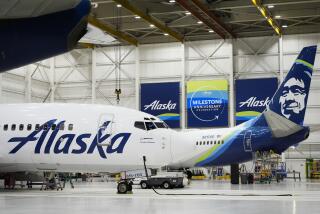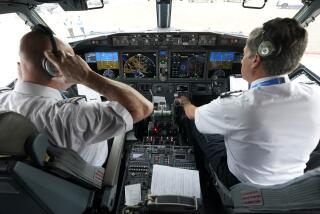Alaska Airlines adopts a tougher policy for emotional support animals
Responding to a rash of mishaps involving animals on planes, Alaska Airlines plans to impose new requirements for passengers flying with emotional support animals.
Starting May 1, the Seattle-based carrier will require passengers who want to travel with emotional support animals to provide proof that the animal is healthy, well-behaved and is needed to support the flier during the flight.
The change comes only months after Delta and United Airlines both adopted similar requirements, which took effect March 1.
Delta and Alaska both have cited a recent surge in incidents involving animals on planes.
Delta said it adopted the new policy in response to an 84% increase in animal incidents since 2016, including animals urinating, defecating, biting, barking and lunging on planes. A Delta passenger was mauled by a 50-pound dog on a flight from Atlanta to San Diego last year.
Alaska carries about 150 emotional support and service animals daily and has been noting problems almost weekly.
“We are making these changes now based on a number of recent incidents where the inappropriate behavior of emotional support animals has impacted and even injured our employees, other guests and service animals,” Ray Prentice, Alaska’s director of customer advocacy, said in a statement.
The airline now requires that passengers flying with emotional support animals provide a letter from a mental health professional or medical doctor, affirming that the flier needs the animal for support.
Starting May 1, passengers must also print and fill out two additional forms from alaskair.com. In one form, the passenger affirms that the animal is well-trained and that the passenger accepts liability for any injury or damage caused by the animal. Another form certifies that the animal is healthy. All three documents must be submitted 48 hours before flying.
Emotional support animals can sit on the lap of a passenger or below a guest’s seat.
To read more about the travel and tourism industries, follow @hugomartin on Twitter.
More to Read
Inside the business of entertainment
The Wide Shot brings you news, analysis and insights on everything from streaming wars to production — and what it all means for the future.
You may occasionally receive promotional content from the Los Angeles Times.











